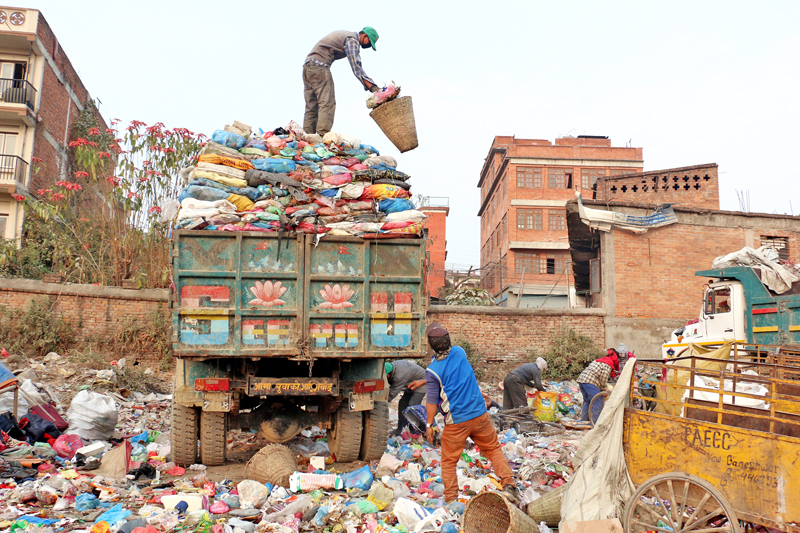Waste segregation a must for every household in KMC
Kathmandu, August 27
Kathmandu Metropolitan City is set to make it mandatory for each household to segregate biodegradable and non-biodegradable household waste.
According to the metropolis, it has started collecting segregated waste in Wards 12, 18 and 21 as a pilot project. KMC will collect biodegradable waste for four days (Sunday, Tuesday, Thursday and Saturday) and non-biodegradable waste on Monday and Wednesday every week.
Chief of Environment Management Department at KMC Hari Kumar Shrestha said green vehicles would collect organic waste, while red vehicles would be used for collecting inorganic waste from houses. The metropolis has also provided training in terrace farming to people of Wards 12, 18 and 21 to help manage organic waste generated at home using compost bin to make fertiliser.
Solid Waste Management Rules-2013 has made the producers of waste responsible for managing harmful or chemical waste.
Under Section 6 of the rules, the local body shall, while fixing segregation of organic and non-organic solid waste at the source, also manage and segregate harmful or chemical waste separately. The responsibility of transporting solid waste up to the collection centre will fall on the body responsible for production of such waste and the local level may, for this purpose, provide the required technology, equipment and container.
“We don’t send biodegradable waste generated from these wards to the lanfill site. KMC will use it for pit composting near Teku Transfer Station,” Shrestha informed. Nearly 516 metric tonnes of waste is generated from the metropolis area on a daily basis. KMC and private outsourcing firms collect the waste for disposal at the landfill site.
The rules state that those who dispose without segregating biodegradable and non-biodegradable waste may be liable to a fine of Rs 500 each time the offence is committed. However, the authorities have yet to implement the law in an effective manner.






